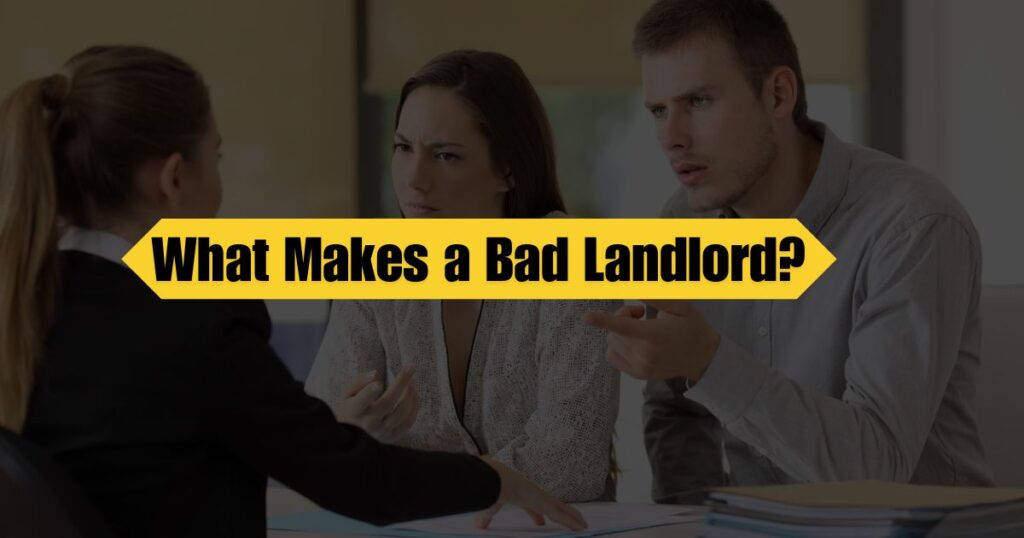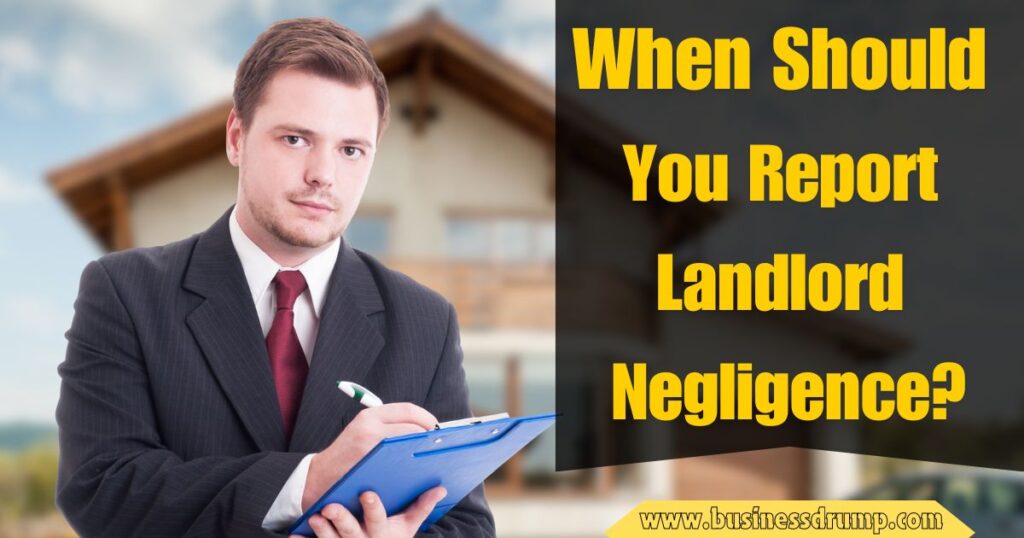Landlord negligence happens when a landlord fails to uphold their duty of care, leaving tenants in unsafe or unsanitary living conditions. Imagine dealing with persistent plumbing issues or dangerous mold.
This is where negligence can seriously affect your daily life. Understanding what constitutes landlord negligence can help you take action and protect your rights.
What Is a Landlord’s Duty of Care?
A landlord’s duty of care is the legal responsibility to ensure that the rental property is safe, habitable, and up to code. This duty covers a broad range of obligations, including making necessary repairs, maintaining common areas, and ensuring that the property meets health and safety standards. When a landlord fails to fulfil these duties, they may be guilty of landlord negligence.
Key Aspects of a Landlord’s Duty of Care
- Maintaining Safety Standards: Landlords must ensure that the property is free from hazards such as faulty wiring, broken stairs, or exposed asbestos.
- Timely Repairs: When tenants report issues like plumbing leaks, heating problems, or broken windows, landlords are obligated to address these promptly.
- Compliance with Local Laws: Landlords must adhere to local housing codes and regulations, which often include requirements for fire safety, sanitation, and structural integrity.
Failure to meet these obligations can lead to legal consequences for landlords and serious repercussions for tenants, including health risks and unsafe living conditions.
What Makes a Bad Landlord?

A bad landlord is more than just someone who is difficult to deal with. Specific behaviour and practices can indicate that a landlord is neglectful or even exploitative, putting tenants at risk.
Characteristics of a Bad Landlord
- Deceiving Rental Advertising: Some landlords may engage in misleading advertising, promising amenities or conditions that don’t actually exist. For example, a landlord might advertise a property as newly renovated when, in reality, only superficial changes have been made.
- Lease or Legal Violations: Ignoring or violating the terms of the lease agreement, such as entering the property without proper notice or failing to return security deposits, are red flags.
- Ignored Maintenance Requests: One of the most common signs of a bad landlord is the failure to address maintenance requests. If you repeatedly report issues like a leaky roof or malfunctioning heater and the landlord does nothing, this is a clear sign of negligence.
- Money Hungry: A landlord who prioritizes profit over tenant well-being might cut corners on essential repairs, charge exorbitant fees, or raise rent without making necessary improvements.
- Poor Reviews from Past Tenants: Consistently bad reviews from previous tenants can be a major indicator of a landlord’s neglectful or abusive practices. It’s always a good idea to check online reviews or ask current tenants about their experiences before signing a lease.
What Constitutes Landlord Negligence?
Landlord negligence occurs when a landlord fails to take reasonable steps to maintain the property, resulting in unsafe or uninhabitable conditions. This negligence can manifest in various ways, from ignoring serious maintenance issues to failing to comply with legal obligations.
Common Examples of Landlord Negligence
- Unaddressed Maintenance Issues: Persistent problems like leaking roofs, faulty wiring, or broken heating systems that the landlord refuses to fix can be grounds for a negligence claim.
- Unsafe Living Conditions: Conditions that pose health risks, such as mold infestations, pest problems, or inadequate ventilation, may also constitute landlord negligence.
- Failure to Address Safety Concerns: Landlords who ignore serious safety issues, such as broken locks, non-functioning smoke detectors, or lack of emergency exits, are neglecting their duty of care.
Table: Common Issues and Potential Hazards
| Issue | Potential Hazard |
| Leaking Roof | Water damage, mold growth |
| Faulty Wiring | Electrical fires, power outages |
| Broken Heating System | Health risks in cold weather, frozen pipes |
| Mold Infestation | Respiratory issues, allergic reactions |
| Pest Problems | Health hazards, property damage |
| Inadequate Ventilation | Poor air quality, moisture buildup |
Understanding these examples can help you determine whether your landlord is neglecting their responsibilities and whether you might have grounds for a legal claim.
When Should You Report Landlord Negligence?

Knowing when to report landlord negligence is crucial. While minor issues can often be resolved through communication, more serious problems may require formal action.
Situations Requiring a Report
- Health Hazards: If you discover mold, pests, or other health hazards in your rental property, it’s important to report these issues immediately. Health hazards can have long-term consequences, and your landlord has a legal obligation to address them.
- Structural Issues: Major structural problems, such as a collapsing ceiling or foundational cracks, pose significant safety risks and should be reported without delay.
- Safety Violations: Any situation that compromises your safety—like broken locks, lack of fire alarms, or insufficient lighting in common areas—should be reported to both your landlord and local authorities if necessary.
How to Report Landlord Negligence
If you’re dealing with landlord negligence, taking the right steps to report the issue is essential. Here’s a step-by-step guide to help you navigate the process:
Steps to Report Negligence
- Document the Problem: Start by thoroughly documenting the issue. Take photos, keep copies of all correspondence, and note the dates of any communications with your landlord.
- Notify Your Landlord in Writing: Send a formal written notice to your landlord detailing the problem and requesting repairs. Make sure to keep a copy for your records.
- Contact Local Authorities: If your landlord fails to respond or resolve the issue, contact your local housing authority or health department. They can conduct an inspection and issue a citation if necessary.
- Seek Legal Advice: If the problem persists, consider consulting with a lawyer who specializes in landlord-tenant law. They can help you understand your rights and potentially take legal action.
Reporting Mold and Winning a Lawsuit
In a landmark case, a tenant in California reported persistent mold problems to her landlord, who failed to take any action. The tenant documented the issue extensively and eventually took the landlord to court. The court ruled in favor of the tenant, awarding significant damages for the health problems caused by the mold and the emotional distress it caused.
This case highlights the importance of documenting issues and being persistent when your landlord neglects their responsibilities.
How to Improve the Relationship with Your Landlord

While dealing with a negligent landlord can be challenging, improving your relationship with them might prevent or resolve issues more effectively. Here are some tips:
Tips for a Better Landlord-Tenant Relationship
- Communicate Clearly: Clear, respectful communication is key. Address issues calmly and provide detailed information about any problems.
- Be a Responsible Tenant: Pay your rent on time, follow the rules outlined in your lease, and maintain the property as if it were your own.
- Offer Solutions: If you’re reporting a problem, suggest potential solutions or offer to help with finding a repair service. This proactive approach can demonstrate your willingness to cooperate.
By fostering a positive relationship, you may find your landlord more responsive to your needs and more willing to address any issues that arise.
Where Can You Find a Good Landlord?
Finding a good landlord can make all the difference in your renting experience. But how do you identify a landlord who will respect your rights and maintain the property?
Tips for Finding a Good Landlord
- Research and Referrals: Start by researching potential landlords or property management companies. Look for reviews online and ask current or past tenants about their experiences.
- Inspect the Property: Before signing a lease, thoroughly inspect the property. Check for any signs of neglect, such as peeling paint, broken fixtures, or unaddressed maintenance issues.
- Ask Questions: Don’t hesitate to ask the landlord or property manager about their maintenance policies, how they handle repairs, and what steps they take to ensure tenant safety.
Table: Questions to Ask a Potential Landlord
| Question | Why It’s Important |
| How do you handle maintenance requests? | Ensures timely repairs and property upkeep |
| What are your policies on rent increases? | Clarifies expectations and financial planning |
| How often do you inspect the property? | Indicates attention to property condition |
| Are there any outstanding issues with the property? | Identifies potential red flags |
By taking these steps, you can increase your chances of finding a landlord who will respect your rights and maintain the property to a high standard.
Read About : Florida landlord insurance
What Is Negligence?
Negligence is a legal concept that refers to the failure to take reasonable care to prevent harm to others. In the context of landlord-tenant relationships, negligence occurs when a landlord fails to fulfill their duty of care, resulting in unsafe or uninhabitable living conditions for tenants.
Elements of a Negligence Claim
To successfully claim negligence, you must prove the following elements:
- Duty of Care: The landlord owed you a duty to provide a safe and habitable living environment.
- Breach of Duty: The landlord breached this duty by failing to maintain the property or address known issues.
- Causation: The breach of duty directly caused harm or damage to you.
- Damages: You suffered actual harm or losses as a result of the landlord’s negligence.
Is Notice Required for Landlord Liability?
In many jurisdictions, tenants are required to give their landlord notice of any problems before pursuing legal action. This notice gives the landlord an opportunity to address the issue and avoid liability. Failing to provide notice may weaken your claim, so it’s crucial to document all communications and follow the proper procedures.
You Don’t Have To Solve This on Your Own – Get a Lawyer’s Help
Dealing with landlord negligence can be overwhelming, especially if you’re unfamiliar with your legal rights. If you’re facing serious issues, it may be wise to seek legal assistance. An experienced attorney can help you understand your options, navigate the reporting process, and represent your interests in court if necessary. You don’t have to solve this on your own. Getting a lawyer’s help can make all the difference.
Conclusion :
Recognising and addressing landlord negligence is essential for maintaining a safe and livable rental environment. By understanding your landlord’s duties and knowing how to identify and report negligence, you can advocate for your rights effectively. Whether it’s documenting issues, communicating clearly, or seeking legal assistance, taking proactive steps ensures that you don’t have to endure unsafe or unsanitary conditions. Your well-being and comfort in your home are paramount, and knowing how to address and resolve landlord negligence empowers you to safeguard both.







